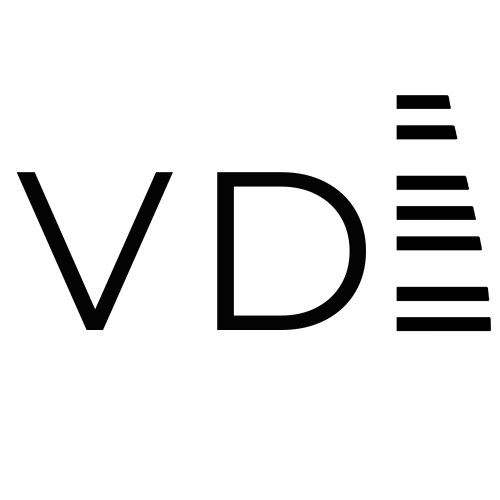What’s so special about Vertical Development?
The term “Vertical Development” has entered the organisational jargon relatively recently, mostly due to the long-time work of researchers such as Bill Torbert, Susanne Cook Greuter or Robert Kegan. It is a more ‘user-friendly’ way to refer to theories which have been known in developmental psychology for decades and originally called ‘ego-development’ theories or later ‘constructive-developmental theory’.
What all of these theories have in common is the proposition that human beings continue maturing mentally and psychologically way after they stopped growing up physically. They all also propose this type of development is very different from simply accumulating more information, knowledge or skills, and it is in fact a series of profound transformations in a person’s worldview and outlook on life. Vertical development brings fundamental shifts in people’s capacity to access more and more internal complexity to adequately respond to a complex world.
Kegan describes vertical development beautifully when he compares the mind with cup and knowledge with water being poured into the cup. Information means to put something new ‘in-form’ - in the existing form of mind. ‘Horizontal development’ means simply adding to the existing cup.
However, you can’t pour water into the cup ad infinitum, because there comes a time when the cup itself cannot hold its contents and overflows. In a human life, those are the moments when our current way of seeing the world simply doesn't serve us anymore and our long-held beliefs about what is true no longer hold. At such pivotal moments, Kegan’s metaphorical cup breaks and some sort of profound growth happens. The ‘form’ of mind ‘trans-forms’ - a new worldview emerges, a more expansive self is born - and with it comes a radically new perspective and a ‘bigger cup’. One becomes capable to ‘look at what one before could only look through’. A previously invisible lens becomes visible. This is ‘vertical development’.
Think of life-changing moments such as going from being a teenager at home, concerned with fitting in and belonging to one’s group of friends, to leaving home, having to carve your own path and discover who you are as an individual, what you’re good at, and what you want to do with your life. Or later, in your professional life, being rewarded for your expertise and individual achievements by being promoted into a position of leadership and having to figure out how to achieve with and through others, versus alone, and shift from depending on yourself only to collaborating and co-creating. Or think of even more disruptive, painful moments such as becoming gravely ill or losing a loved one and having to put your whole life into a new perspective. While deeply painful, such life cross-roads often create profound transformations and give rise to new, more complex and mature versions of oneself. And these more mature versions in turn become capable to better navigate the messiness of life and put some of the hard-won wisdom to good use.
Meanwhile, the less spectacular but equally important ‘horizontal development’ unfolds in the background. You keep on learning new things, upgrading your knowledge and skills and constantly putting new information into your existing cup. While those cup-shattering and growth moments often happen years apart, it is the day-to-day learning that helps you create reliable incremental progress.
For a long time the terms ‘vertical’ and ‘horizontal’ weren’t even mentioned when people spoke of development in organisations because the distinction was often not known or not believed to be important. In designing learning programs, the focus was mostly on providing leaders with knowledge and skills which, it was assumed, they would take forward into their work - all this despite constant proof that leadership programs are often not as effective as organisations hope. So, what has changed?
In recent years the complexity and disruption facing leaders have grown exponentially. Huge disruptors such as climate change, economic instability, social unrest, the COVID-19 pandemic and more recently the war in Ukraine, have painfully revealed the limitations of leadership at all levels. The pandemic in particular has become a sort of collective wake-up call, shattering countless mental ‘cups’ all at once and getting a whole generation of people to re-assess how they want to work and live their lives.
With this collective unrest came a stronger impetus to discuss what is needed to live and lead in disruption. More than before, organisations are starting to wonder what it might take to grow their leaders’ maturity and capacity to thrive in complexity. There was increasing awareness that such skills such as tolerance for ambiguity, systemic thinking and capacity to leverage paradox cannot be learnt from books or traditional training programs. Hence, vertical development has all of a sudden become topic of interest.
Much has been done to define the stages of development and point out their characteristics. Also, there is extensive research showing that more mature (vertically developed) leaders are simply more effective and better equipped to lead in a VUCA world. Now more and more interesting questions are emerging:
How does vertical development actually unfold and how do you foster it in leaders? Can it occur in the absence of catastrophic life disruption? Can it be stimulated through workplace learning? If yes, how does organisational learning need to transform to become a catalyst for vertical, not just horizontal development?
We’ll explore some of the existing answers to these questions in upcoming articles and hopefully help craft new, ever more interesting questions.
If this article was useful, please share your comments, thoughts and questions. And if you’d like to stay tuned to upcoming content as we publish, hit the ‘subscribe’ button on the bottom of this page and join our growing community of learners.
If you are keen to find out more about vertical development, coaching and leadership, check out our upcoming online, self-paced, research based program: “Vertical Development Practices for Coaches”

